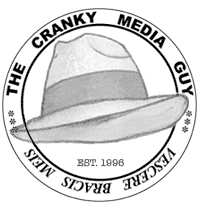Fight for Your Right To Party
We all like to laugh at the stars, but we must never forget that recording artists are mostly just clowns and show ponies. The real enemy is the Record Label that pretends to be the five separate major labels left in the Western world. (Speaking of which, did you hear that EMI bought out Mariah Careyís contract? They let her go for something between $20 and $50 million bucks, depending on whom you ask. How much trouble can she be that her label would spend so much dough just to get rid of her? Her singles always hit the tops of the charts and her albums are guaranteed platinum. Thatís amazing.)
So hereís the storyÖ In California, there is a law stating "all entertainers and workers in California, except recording artists, have the right to terminate a personal service contract after seven years." Thatís according to Sonicnet.com; they havenít steered me wrong yet so weíll take their word for it. Whatís worse is that recording artists were covered under this law until 1987, when the labels got an amendment through exempting their artists from such pampering.
In the simplest terms, the labels and the artists seem to be arguing the same point: "Weíll never have any security if we give too much power to a fickle, childish, greedy monster like a recording artist/record label." The labels donít want to let artists wiggle out of contracts that are favorable to the label, and the artists donít want to be held to a contract they signed years ago, perhaps before they had a hit record and acquired some clout in the industry.
The labels say that taking away the security of having a major artist under contract for years will make it harder for them to risk money on new, unproven bands. That is a joke. Labels sign plenty of bands, but they donít spend a dime on the ones that arenít already successful. They spend promotional money not on genuinely new bands, but on "The New Limp Bizkit" or "The New Blink-182." Labels are not taking any chances with their product.
The most annoying part of all this may be who has come out of the woodwork to support artistsí rights. Courtney Love, Don Henley, Carole King, and John Fogerty are among the luminaries. None of these people need protection from record labels (I typed extra hard to give that emphasisódid it work?). None of them! If Don Henley finds himself without a label suddenly, he can wipe away the lonely teardrops with crumpled hundred dollar bills he got from the squintuple platinum Eaglesí Greatest Hits. "But what if he was robbed by the labels and isnít getting a fair share of the royalties?" Then he can get his ass in a van and go on tour. People, for some reason, still want to see Don Henley. And Carole King, John Fogerty, and maybe even Courtney Love.
Amending the law to give artists a fair shot is good for the bands that arenít on MTV, wonít ever need a greatest hits compilation, and can only get on the cover of a glossy magazine with a Polaroid I-Zone camera. And the fact that these bands and artists are usually making more interesting music, or at least connecting to fans in a more personal way, makes the amendment that much more important to the listening public. The truth of the industry is a simple one: Bands that arenít selling records by the boatload are not making good money.
WRITE!! ...Comments may be sent to crankymusicman@yahoo.com
Check out the previous column.
|



